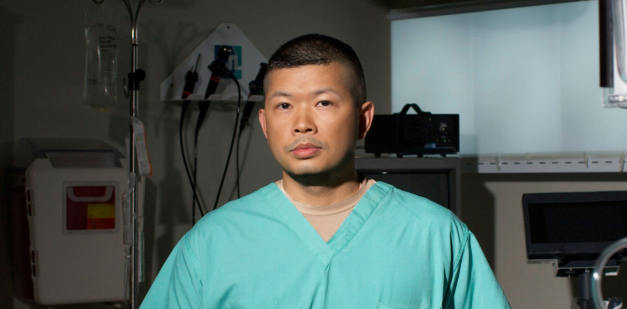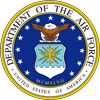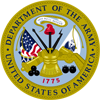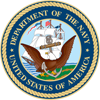 Prev - 66H Prev - 66H | Nurse Corps Jobs | Next - 66G |
Nurse Anesthetist - 66F

- Active/Reserve:Both
- Officer/Enlisted:Officer
- Restrictions:None
An integral component of the U.S. Army health care team, the Army Nurse Corps continues to distinguish itself from the traditional nursing field. As a Certified Registered Nurse Anesthetist and officer on the U.S. Army health care team, you'll provide specialized care to patients requiring general anesthesia, respiratory care, cardiopulmonary resuscitation and fluid therapy. You'll work as part of a multidisciplinary team, surrounded by dedicated professionals who share your values.
Scope of practice encompasses all areas where anesthesia is administered to include: inpatient operating rooms, Ambulatory Surgery Center, delivery rooms, postanesthesia recovery rooms, critical care units and emergency departmentsDevelop an anesthetic plan based on a preanesthetic evaluationPerform or supervise the performance of the anesthetic experience in collaboration with an anesthesiologist and/or appropriate physician throughout the preoperative, intraoperative and postoperative phases of anesthesia and surgeryAdminister analgesia and anesthesia for the labor and delivery processActive involvement in acute postoperative pain management of the surgical patient utilizing various techniques and pharmacological agentsDocument the anesthetic process to include physiological and psychological reactions to anesthesia and surgeryProvide consultation and service for cardiopulmonary resuscitation and airway managementConduct medical research on diseases of military importance, and conduct, supervise, and participate in graduate medical education and training of other medical personnel needed to sustain a robust medical system Unique duty positions include: clinical staff nurse; instructor; phase II director; program director or deputy program director; assistant chief or chief, anesthesia nursing section
Active Duty Master's degree in nursing anesthesia, from an accredited programBetween 21 and 42 years of age Certified registered nurse anesthetistU.S. citizenship Army ReserveIn addition to the above qualifications, permanent U.S. residency is required for Reserve duty officers.Between 21 and 42 years of age (may request a waiver, Locate A Recruiter for more information)
ACTIVE: In the U.S. Army, the case diversity nurses experience in caring for Soldiers and their families far exceeds the medical care environment of the private sector. As an Army Nurse Corps officer, you'll have access to the most sophisticated technology, the opportunity to consult with experts in both the military and private sector, plus exceptional professional growth opportunities, which may include paid continuing education, clinical specialization and residencies.RESERVE: Your introduction to the Army Reserve begins with the Army Medical Department Basic Officer Leaders Course (BOLC), a nine-week program that will expose you to the variety of mental and physical challenges you'll face as a member of the health care team. You'll learn about the U.S. Army's approach to health care firsthand, training with other professionals and attending lectures, conferences and demonstrations that cover everything from U.S. Army customs to crisis management. You may even have the opportunity to participate in a hands-on medical simulation of an in-theater field medical unit.After completing BOLC, you will serve with a Reserve unit a minimum of two days each month and participate in annual training for at least two weeks each year. During this time, your duties may include attending professional seminars and military or nursing education courses provided by the U.S. Army. Plus, you'll have the opportunity to work in a wide range of health care environments, whether it be in a modern hospital, working with skilled professionals in a variety of clinical situations or supervising paraprofessionals in a field medical unit.
The normal environment of an Army Nurse Corps officer's work requires timesensitive problem analysis with an accurate, sound and immediate decision. Ability to operate under stress, apply critical thinking skills, make decisions, and translate these skills to battlefield conditions is critical to medical and mission success. Effective patient care requires the proper balance between technical skills and the ability to apply the appropriate treatment or procedure at the right moment. Army Nurse Corps officers possess expert knowledge in their area of concentration, patient management, and general support and coordination principles. Nurses gain this knowledge through continuing medical education and experience sustained by mentoring, additional institutional training, continuous selfdevelopment and progressive levels of assignments within their specialty.
The Armed Services Vocational Aptitude Battery (ASVAB) is an examination that is administered by the United States Military Entrance Processing Command. It is used to determine qualification and helps predict future academic and occupational success in the military.
No ASVAB
ACTIVE BENEFITS:In addition to the many privileges that come with being an officer on the U.S. Army health care team, you'll be rewarded with:
Army Nurse Accession BonusHealth Professions Loan Repayment Program Travel opportunities, including humanitarian missionsNocost or lowcost medical and dental care for you and your familyNoncontributory retirement benefits with 20 years of qualifying service30 days of paid vacation earned annuallyRESERVE BENEFITS:
Healthcare Professionals Loan Repayment ProgramNetworking opportunitiesNoncontributory retirement benefits at age 60 with 20 years of qualifying serviceLowcost life and dental insuranceTravel opportunities, including humanitarian missionsBoth active and Reserve duty officers enjoy commissary and post exchange shopping privileges; a flexible, portable retirement savings and investment plan similar to a 401(k); may receive pay for continuing education; and specialized training to become a leader in their field.
See the whole list of Army Occupational Specialties here
To learn more about the Army's rank structure, see our complete list of Army ranks.
To see a list of military medals and decorations that can be earned by servicemembers in the Army and other branches of the military, see our list of military decorations and medals.








































































































































